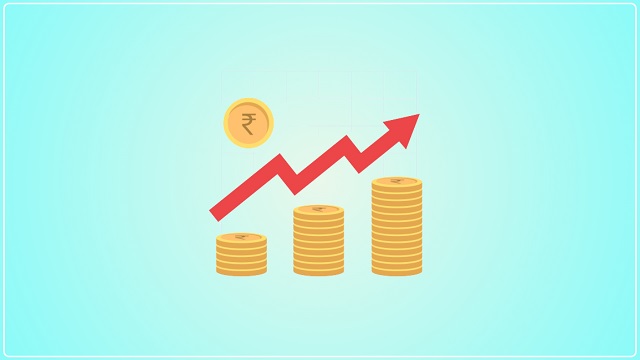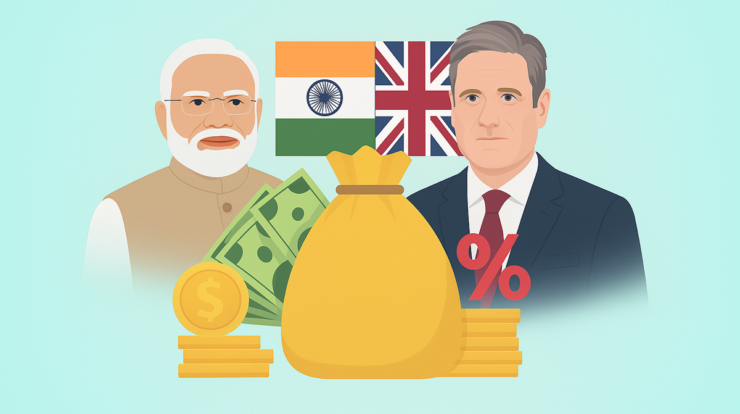
What is inflation?
Inflation is a rise in the general level of prices of goods and services in the country over some time.
As the cost of goods and services increases, the value of a currency declines because you won’t be able to purchase as much with that currency as you could have last month or last year.
It is also considered a global phenomenon. It takes place because of the rapidly rising prices of goods and services, resulting in the decline of the value of money.
What are the types of inflation?
- Open inflation
- Suppressed inflation
- Creeping inflation
- Galloping inflation
- Hyperinflation
Open inflation
The rate where costs rise due to economic trends of spending products and services
Suppressed inflation
When governments prevent the price rise through price controls, rationing, etc, it is known as suppressed inflation.
Creeping inflation
it is a situation where mainly the inflation of a nation grows slowly, but regularly over time. this tends to be a typical pattern for many nations
Galloping inflation
This inflation is a kind of very speedy inflation that is practically impossible to reduce
Hyperinflation
Hyperinflation is caused mainly by excessive deficit spending (financed by printing more money) by a government, some economists believe that social breakdown leads to hyperinflation.
The Theories and Causes Of Inflation
The main cause of inflation is the increase in the demand for goods and services and the same time decrease in the supply of goods and services.
The two theories which are related to the causes of inflation are:
- Demand-pull inflation
- Cost-push inflation
Demand-pull inflation
this occurs when there is excess aggregate demand in the economy overall or a specific market or industry. Businesses respond to high demand by raising prices to increase their profit margin.
Cost-push inflation
it happens when the costs of manufacturing are increasing.
These are mainly caused due to the following factors.
- Increase in wages.
- Increase in cost of raw materials.
- The increased cost of import-push inflation.
Control measures
- Monetary policy: Monetary policy essentially implies the policy followed by financial institutions.
High-interest rates and slow growth of the money supply are traditional ways through which central banks fight or prevent inflation.
- Fiscal measures
Reduction in unnecessary expenditure.
Increase in taxes.
Increase in savings
Adopt surplus budget
And some other measures are like:
- To increase production
- Rational wage policy
Measuring inflation
- Inflation is also being evaluated by computation of the inflation rate of a price index, as likely as the consumer price index.
- The consumer price index measures prices of a selection of goods and services purchased by a “typical consumer”
- The inflation rate is the percentage rate of change of a price index over time.
- Producer price indices(PPIs)
- Commodity price index
- Core price indices
Costs and consequences of inflation
Consumers and businesses on fixed incomes lose out because their real incomes fall- employees in poor bargaining positions lose out.
Effects of inflation on Economy
Effects depend on the speed of inflation and the nature of the economy.
- Rising prices of imports
- Lowers national saving
- Redistribution of income & wealth
- The collapse of the monetary system
- Adverse impact socially and politically
- Discourages investment & savings
- Higher interest
Positive effects
- Increase in production due to inflation.
- Increases the employment opportunities in the country.
- Enhances the process of economic activities that may cause inventions and innovations.
- It increases the economic activities which may cause inventions.
- The profit of the product also increases when there is normal inflation.
Negative effects
- It is huge problem for employees, taking fixed salaries.
- It generates an unfair distribution of income and wealth.
- Inflation reduces the saving of the population.
- It becomes a cause of unfriendly balance of trade and payment.
- Inflation increases the rate of interest.
- It is difficult for consumers to purchase more goods.
- It generates very bad effects on the poor labor force.
- Inflation reduces the living standard and purchasing power of people.
- It is harmful to creditors.
- Inflation reduces purchasing power.
Advantages of inflation are:
- Moderate inflation enables economic growth.
- Moderate inflation allows adjustment of real wages.
- Moderate inflation allows adjustment of prices.
- Inflation is better than deflation –which can cause a recession.
Disadvantages of inflation are:
- Creates uncertainty and lower investment.
- High inflation often leads to lower growth and less stability.
- Reduces international competitiveness.
- Reducing inflation can lead to recession.
- Fall in value of savings.
Conclusion
In conclusion, after a deep study on the topic of what is inflation? What are the types of inflation and how does it affects the economy. It covers the objectives which I have set( complete information of inflation, what are the types of inflation, theories, and causes behind inflation, control measures, costs and consequences of inflation, effects of inflation on economy and its advantages and disadvantages.) I have observed that a change in the growth rate of money supply has real effects in that higher growth in money leads to higher inflation, which changes consumers’ decisions on leisure and consumption, which affects equilibrium output and employment.
Moreover, higher inflation increases the normal interest rate, which is the opportunity cost of carrying money. as a result, consumers tend to hold fewer money balances.
Here I have learned many things like how inflation works and how it increases and decreases. This all provides me the knowledge of inflation how it is helpful for others in my suggestion. It provides us the proper knowledge that how inflation affects our economy directly, positively, or negatively and it helps us to keep our economy in proper functioning and help us to know how to make growth pf our economic system which will lead to making it best.
You may refer to this video if you want the explanation in Hindi



